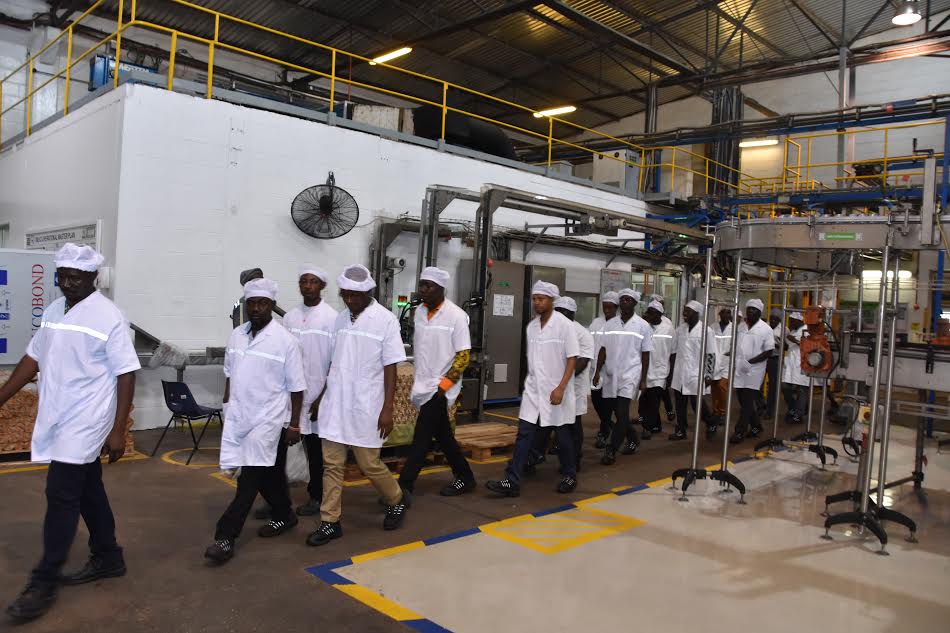General
Nestlé’s 16,000 job cuts and $1bn savings plan may ripple across African markets
Global food and beverage giant Nestlé has announced plans to cut 16,000 jobs worldwide as part of a sweeping $1 billion cost-saving program, a move that has sparked questions about potential impacts on its extensive African operations. Nestlé announced plans to cut 16,000 jobs globally under a $1...
Business Insider Africa
published: Oct 17, 2025


Global food and beverage giant Nestlé has announced plans to cut 16,000 jobs worldwide as part of a sweeping $1 billion cost-saving program, a move that has sparked questions about potential impacts on its extensive African operations.
- Nestlé announced plans to cut 16,000 jobs globally under a $1 billion cost-saving initiative.
- The layoffs include 12,000 white-collar positions and 4,000 from manufacturing and logistics sectors.
- The restructuring aims to increase profitability and streamline operations while focusing investment on top-performing categories
- Nestlé's African operations, employing thousands across 40 countries, may face indirect impacts
Nestlé’s announcement of plans to cut 16,000 jobs globally as part of a sweeping $1 billion cost-saving initiative is likely to send ripples through African markets, where the food and beverage giant maintains a significant footprint.
The layoffs, which include 12,000 white-collar positions in management and office roles and 4,000 in manufacturing, logistics, and supply chain departments, are part of Nestlé’s global restructuring aimed at boosting profitability and streamlining operations.
Philipp Navratil, Nestlé’s new CEO who took over in September, acknowledged the scale of the company’s upcoming restructuring, saying, “The world is changing, and Nestlé needs to change faster. This will include making hard but necessary decisions to reduce headcount over the next two years. We will do this with respect and transparency.”
He added that the company aims to “substantially reduce costs,” raising its total savings target to CHF 3 billion by the end of 2027.
The company says the move will help it focus investment on its strongest-performing categories, including coffee, confectionery, and premium goods.

Nestlé’s share price has fallen by about 35% since 2022, and while sales grew by 2.2% in 2024, its weakest performance in years. The company’s share price rose slightly to 3.3% in the first nine months of 2025.
Reported net sales totaled CHF 65.9 billion (€70.9 billion), a year-on-year decline of 1.9%. The company hopes the job cuts will yield annual savings of 1 billion Swiss francs, contributing to a total cost-saving target of 3 billion francs by 2027.
Impact on African workforce uncertain
Nestlé employs thousands of workers across over 40 African countries, with 16 factories spread across key markets such as Nigeria, Ghana, Côte d’Ivoire, Kenya, South Africa, and Zimbabwe.
According to Nestlé, the first nine months of 2025 showed steady growth across its Asia, Oceania, and Africa (AOA) region, with organic growth (OG) reaching 2.7%.
The company noted that the strongest performance came from Central and West Africa, where demand for key products such as Maggi, Milo, and Cerelac remained resilient despite inflation and supply challenges. Nestlé said this growth reflects Africa’s rising consumer base and continued investment in local manufacturing and distribution networks.

The company’s Africa operations are largely centered around two regional hubs: Central and West Africa (CWA) and East and Southern Africa (ESAR), which produce some of its most recognizable products, including Milo, Maggi, Cerelac, and Nescafé.
Analysts say while large-scale factory layoffs in Africa appear unlikely in the immediate term given the company’s dependence on local production for regional markets, white-collar and administrative positions could be vulnerable.
Speaking to Africa News about the company’s restructuring, Chris Beckett, consumer staples analyst at Quilter Cheviot, said Nestlé remains “a work in progress,” adding that “management have grand ambitions to bring Nestlé back to where it has historically been.”
While the continent remains central to its long-term growth plans, Nestlé has repeatedly scaled back operations in response to economic and operational pressures.
In 2018, the company shut its Equatorial Africa regional office in Nairobi as part of a wider streamlining effort, redistributing management roles to other hubs.
That same year, it closed its Kinshasa factory in the Democratic Republic of the Congo, citing persistent losses and weak consumer demand. Earlier, in 2009, Nestlé suspended dairy operations in Harare, Zimbabwe, amid political tensions, before resuming production months later.
Regional offices in Accra and Johannesburg, which oversee management, marketing, and supply-chain coordination, may see restructuring if global consolidation targets back-office functions.
“If Nestlé’s white-collar downsizing is applied globally, Africa’s regional offices might not be spared, especially where roles overlap with global operations,” an analyst noted.
Nestlé’s recent restructuring aligns with its cost-saving efforts in past years. In 2018, the company closed its Nairobi regional office to simplify decision-making and reduce overheads.
Despite the global shake-up, Nestlé has reiterated its commitment to Africa, describing the continent as a “long-term growth market”.
However, while the company continues to expand its local manufacturing footprint, global cost pressures and efficiency drives mean that Africa’s growth story won’t be completely shielded from headquarters’ austerity measures.
Read More